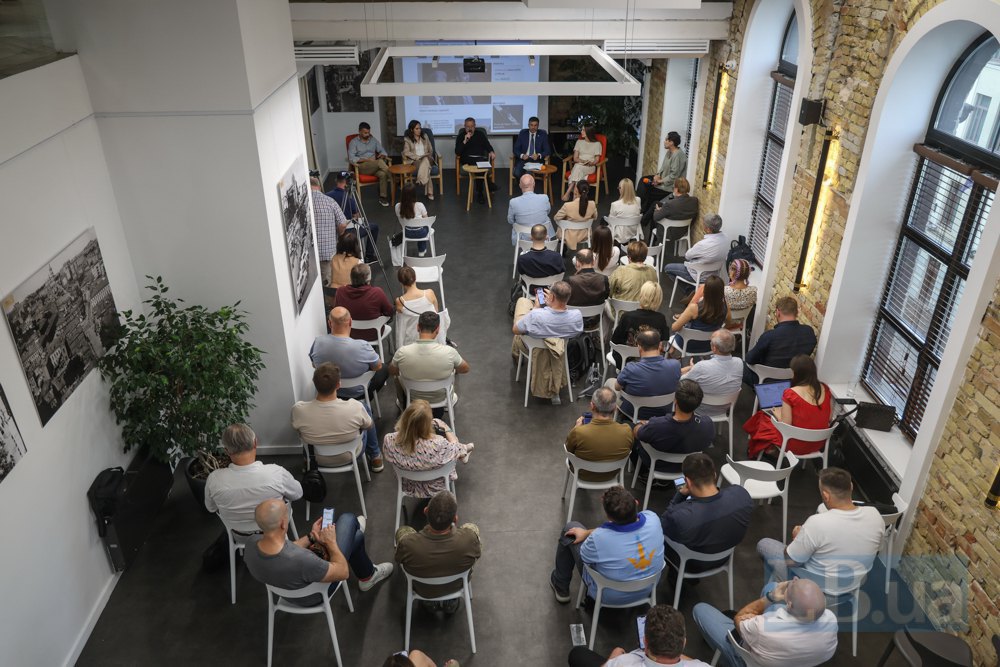
The Rome Statute gives Ukraine a balance between rights and obligations
"Since Ukraine recognised the jurisdiction of the International Criminal Court, we have had all the obligations under the Rome Statute, but we have not been able to participate in the adoption of important decisions of the ICC.
Now we have a balance of rights and obligations as a full-fledged member of the Rome Statute family. From now on, Ukraine can take part in decision-making on the work of the ICC, and also has access to the ICC mechanisms, which, among other things, provide support and compensation to victims," Kostin commented on the ratification of the document.
However, he acknowledged that this is not enough - today, international justice does not have the proper tools to punish Russia for its aggression.
"The very possibility of waging an aggressive war in Europe in the 21st century has demonstrated that the international legal order needs changes and new mechanisms. The International Criminal Court, for example, cannot currently try the direct perpetrators (the so-called top three leaders of the Russian regime: the president, the prime minister and the foreign minister) of the first and most important international crime - the crime of aggression. In our situation, he is deprived of such an opportunity," the Prosecutor General said. And, of course, such gaps in international law are being exploited by Vladimir Putin when he visits Mongolia: it is a ratifier of the Rome Statute, but the Kremlin leader has not been arrested there.
"Putin chose Mongolia for a reason"
"Of course, Putin's visit to Mongolia has dealt a blow to the entire system of international criminal law, but it is just a blow. Let's not make a tragedy out of it. I am sure that Mongolia will also feel the consequences of this, because the international community will not ignore such an act of the country. In fact, Mongolia has jeopardised its international subjectivity. And Putin used the whole country as a tool in this geopolitical game. But let's not forget that there are 125 ratifiers of the Rome Statute. Among them, there are those with which no one can do anything if Putin wants to go there. For example, Niger," said the Prosecutor General.
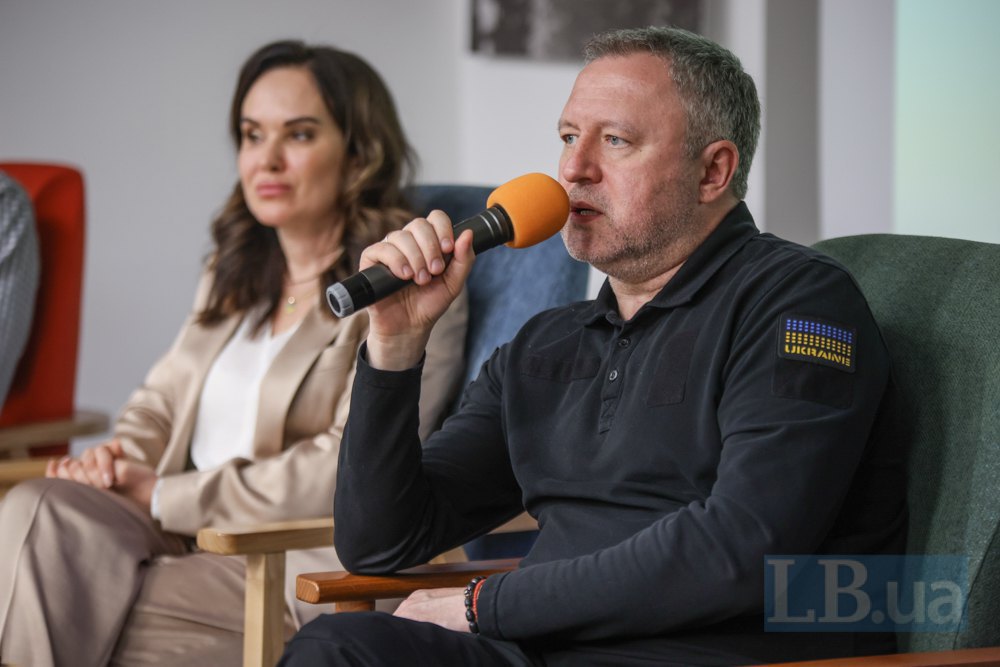
According to Andrey Kostin, Putin chose Mongolia for a reason - it is a weak country with a low level of democracy. Before the G20 summit in Brazil, this situation is worrying, the prosecutor general said, but he does not believe that the G20 members will allow the Russian dictator to appear there.
"Let's not give up, because the International Criminal Court will also respond to this. Not as fast as we would like, but there will definitely be a reaction. ...I don't think this case completely undermines the credibility of the mechanism, but it shows that our system of international law is under constant threat - Putin has practically shown that it is possible to disregard the system of international law and, even when experiencing the complex consequences that Russia is now facing, still continue to wage an aggressive war.
I do not think that these cases mean that we should reject all the achievements of humanity in the field of international law since the World War II. It means that we should become a full-fledged part of this system and initiate the necessary changes at home. Ukraine has already become a catalyst for many changes," said the Prosecutor General.
Ukraine's steps at the national and international levels
Establishment of a special tribunal for the crime of aggression
"At the beginning of the full-scale invasion, our partners did not seriously consider the idea of establishing an international tribunal for the crime of aggression," the Prosecutor General said. Today, an international coordination group of more than 40 countries is working on this.
"Ukraine is the first country since the World War II to raise the issue of establishing an international tribunal for the crime of aggression at the international level. All previous international judicial mechanisms dealt with other types of international crimes. However, the crime of aggression - as the main one, as the first one - is the cause of all other war crimes. Therefore, the absence of a mechanism for punishing the crime of aggression actually enables people like Putin to launch aggressive wars that lead to tragedies for civilians," Kostin said.
He reminded that the International Centre for the Prosecution of the Crime of Aggression was established on the basis of Eurojust, which employs 16 prosecutors from six countries, including the United States of America. These prosecutors not only collect evidence, they actually "build future cases" for the tribunal, the Prosecutor General stressed.
Kostin also noted that a group of prosecutors has been formed and is working in The Hague.
"This is a parallel process. It is an element of the new Ukrainian diplomacy that was launched on 24 February. These are not my words, this is what I hear from our partners.
For example, if there is a certain situation that consists of stages: negotiations on the establishment of the tribunal, approval of the tribunal's charter, election of the prosecutor, election of the court, and then the start of the investigation. But we lose a lot of time. What are we trying to do? Where there are two or three stages, we try to start the second and sometimes even the third stage while the first is still in progress, so as not to waste time.
Of course, this work is so complimentary to the future tribunal, and it is also a very important political factor. When the European Union, through the European Commission, began to finance this work, it meant that there was political will, there was a political understanding that the tribunal would be established, because no one would have invested for nothing," the Prosecutor General said.
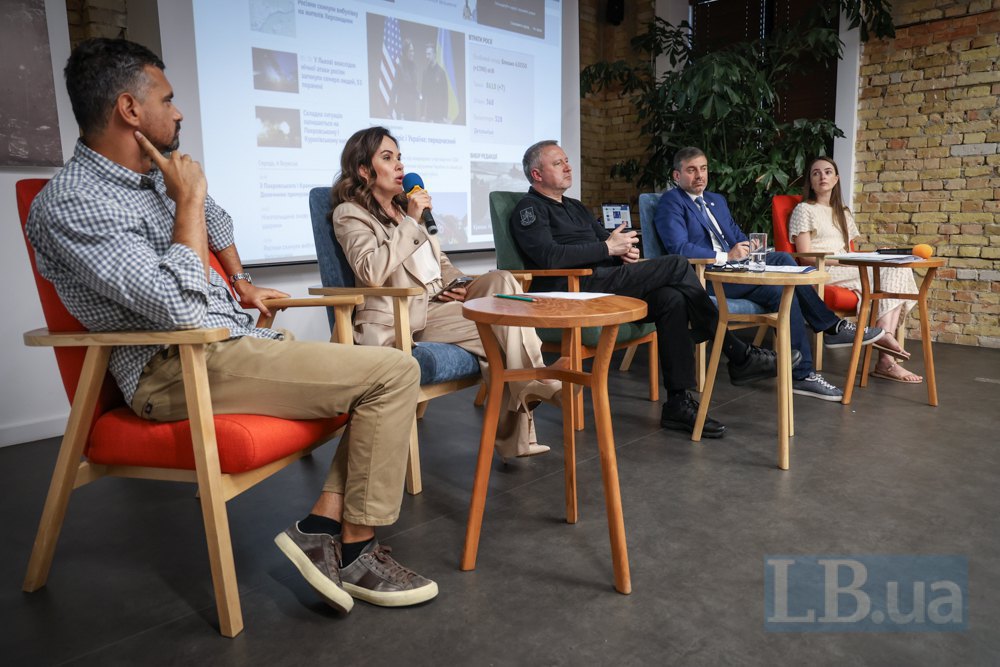
Working with the ICC - six arrest warrants
"You know, they say that the millstones of justice turn slowly. But thanks to our cooperation with the International Criminal Court and other partners, they are starting to turn faster and faster," Kostin said and recalled the six arrest warrants for top officials and military leaders of the Russian Federation.
"Six arrest warrants. The first two warrants are for the forced deportation of children. The first warrant is for the president of a country that is a permanent member of the UN Security Council. It took five months of work by our prosecutors, investigators and the ICC team to prepare this case to the point where the ICC could issue an arrest warrant. This is an unprecedented speed of work. That is, we are changing, among other things, the ICC's approach to its own role in the system. Why is this happening? Because this is 100% cooperation with the International Criminal Court.
This is also recognised by Kareem Khan (Chief Prosecutor of the International Criminal Court, who on 1 March 2022 announced the launch of an investigation into war crimes and crimes against humanity committed by Russia in Ukraine). I don't remember any country that cooperates with the International Criminal Court on such a systematic level," Kostin said.
He also noted that the ICC Chief Prosecutor Kareem Khan has a common vision with Ukrainian authorities of delivering justice in time - that is, restoring justice, justice in time - victims should not wait decades for something to happen, everything should be investigated as soon as possible.
Involving countries in war crimes investigations
Ukraine actively engages foreign partners in the investigation of war crimes. According to Andriy Kostin, we are currently cooperating with more than 27 countries that have either launched their own investigations or are collecting evidence of crimes committed by Russians.
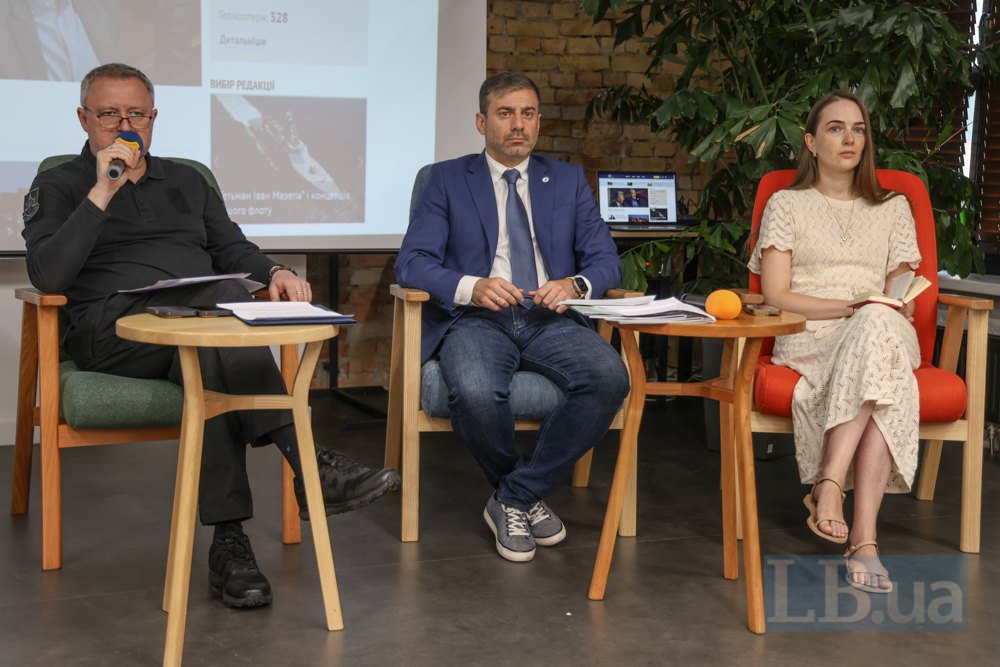
"This is a very painstaking, very difficult job. Somewhere we are pushing our partners to investigate cases, and some of them will be transferred to foreign jurisdictions. I want this network of universal accountability to have a geographical dimension, so that they [Russians] understand that they will be prosecuted there as well," the Prosecutor General stressed.
He announced the launch of a war crimes investigation in the first country of the Global South, calling it "a powerful signal to Russia".
"Let us recall the United States of America. For the first time in its history, it has indicted four potential war criminals for torture and inhuman treatment of a US citizen. A civilian who happened to be in the Kherson Region during a full-scale invasion. This is a big job. Yes, this is one case, one victim. But this is a very important result. The Americans have never done this before. And this is the result of our cooperation," said Kostin.
He gave another example: "The achievement of our joint investigation team, which consists of seven countries under the auspices of Eurojust, is three potential criminals who have been charged with the murder of a famous Lithuanian film director in Mariupol. And it's not just a suspicion served in absentia. It is also in absentia, but it was served based on the results of a joint investigation team of seven countries without access to the scene. Identifying those who allegedly killed a Lithuanian citizen is also very new for international justice.
Therefore, our work is systematic. We use absolutely all the tools that exist. ...Ukraine is actively proposing what can be done to create a sense that the law exists. At the national level, bilaterally, multilaterally, using international instruments and offering new ones," the head of the OPG stressed.
He also reminded that all elements of holding Russia accountable were included in paragraph 7 of the peace formula. And 75 countries have already joined the implementation of this point.
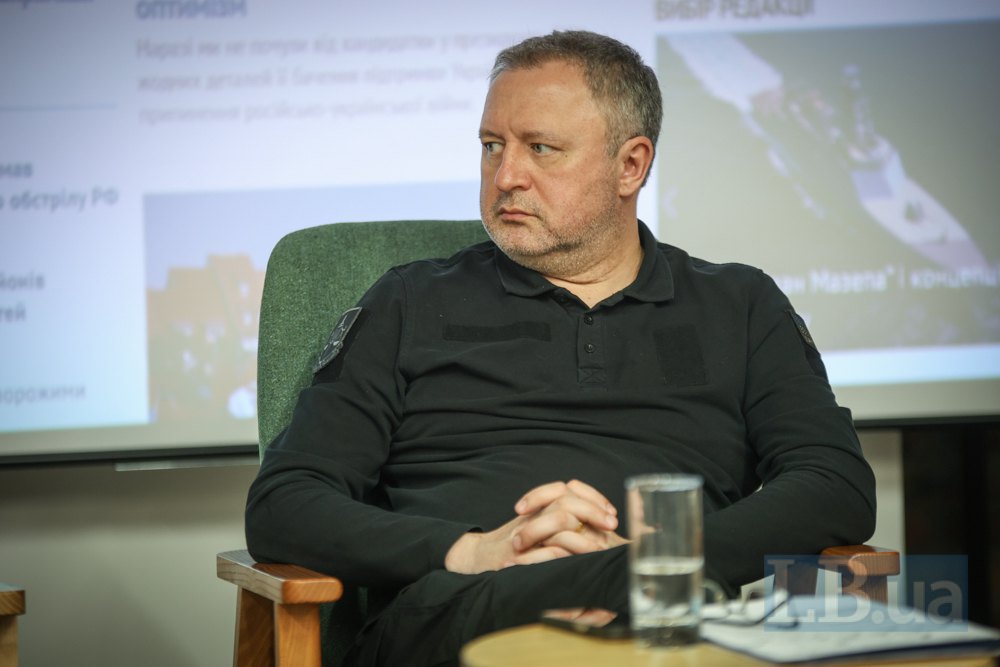
Seizure and confiscation of foreign assets
According to Andriy Kostin, many government agencies, including law enforcement agencies, have now reoriented their work to investigate cases such as the seizure of Medvedchuk's yacht from the perspective of economic crime.
"This gives Ukraine more opportunities not only to seize the property of those who help the aggressor country, but also to seek the confiscation of this property and use these confiscated funds in the Ukrainian budget to help the Armed Forces, to help repel the criminal aggression of the Russian Federation.
...All government agencies in this situation must work together, must support each other's position. This is the only way we can achieve results. Because what we are doing is completely new not only for Ukraine, but also for the countries that are facing this," said the Prosecutor General.
Changing the traditions, philosophy and mindset of law enforcement
Over 99% of war crimes committed by Russians will be investigated by the national law enforcement system, the Prosecutor General said. Already, 676 Russian war criminals have been identified as suspects, and 128 have been convicted in Ukrainian courts.
"Ukraine is also the first country in the world to do this. During the hot phase of the war, we not only document, we investigate, bring to court and convict. This is very important," said Kostin.
At the same time, he acknowledged, the huge number of victims in Ukraine has forced a change of focus in the work of law enforcement.
"The tradition of the Ukrainian law enforcement system has been repressive. The main goal was to find the offender, prove his guilt, get a sentence, and send him to prison. While the interests of the victim in many cases were somewhere on the sidelines. The situation in which we found ourselves - hundreds of thousands of victims - led us to the conclusion that we needed to completely reorient the focus of our efforts. Because we work as a law enforcement system in the interests of victims. This is a complex process of changing not only traditions, but also the philosophy and mindset of many law enforcement officers. We are on this path together with civil society," said the Prosecutor General.
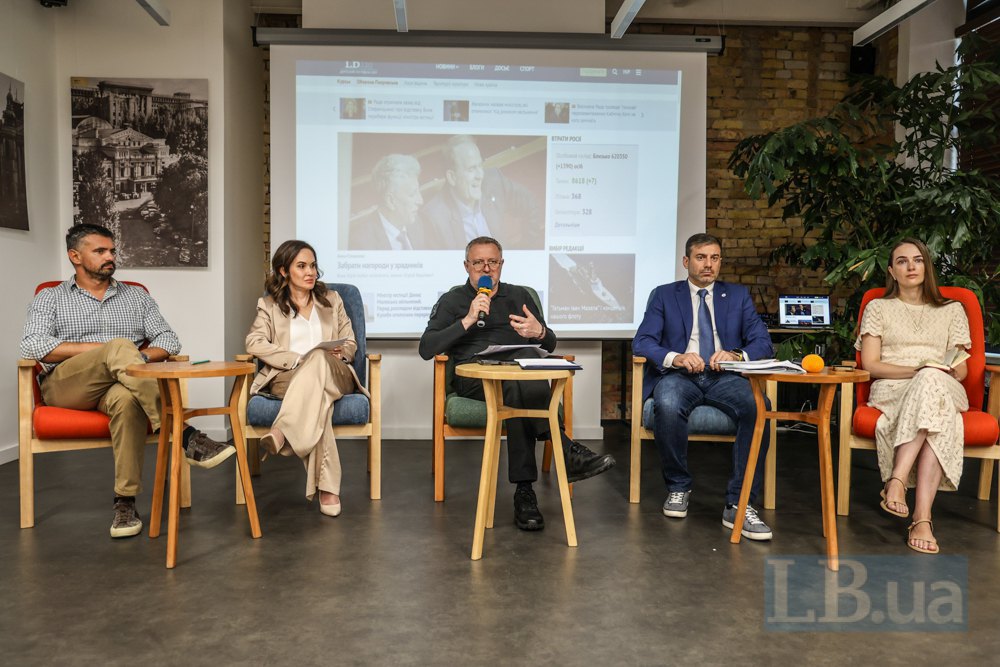
According to him, law enforcement officers are trying to maintain the victims' faith in justice by considering cases in absentia.
"Sometimes our partners ask me: why do you transfer cases in absentia (a criminal case is heard in court in the absence of the defendant, resulting in a court decision in absentia, formalised by a relevant act). You can wait. But we cannot and will not wait if we have identified the offenders and the victims know that these are the people who committed the crime against them.
We cannot wait. Why? Because even a court verdict in absentia is a very big result for many victims. I know that many of our non-governmental organisations are watching these trials. They communicate with our victims, with our investigating prosecutors. That's why we are trying to bring cases to court and get verdicts right now. This is the support, even moral support, for many people. It is the restoration of justice and dignity," said Kostin.
Support for victims and witnesses
The ratification of the Rome Statute gives an impetus to bring our legislation and approaches to the investigation of war crimes, as well as support for victims, in line with international best practices, said the Prosecutor General.
Last year, the Coordination Centre for Victims and Witnesses was established. This year, it is planned to open such coordination centres at regional prosecutor's offices in 10 more regions.
"We train people to be such bridges between victims and the justice system. Of course, for every victim, their case is the most important in their life. But it is also true that investigators and prosecutors, having hundreds of such proceedings, cannot pay attention to each and every one. That's why we have developed a tool - specially trained people to work with victims, with their interests and needs. This includes offering them a comprehensive approach - not only assistance in establishing justice, i.e. legal assistance, but also, through our constant links with other state and civil society institutions, psychological, medical, financial and any other assistance.
Because the most important thing for a victim is to restore their life, their dignity, and the ability to experience happiness. No matter how difficult it is. We have to bring our people back to life, even at this time, to make them feel happy," Kostin said.
According to him, when the coordination centre was created, a pilot project was launched on the basis of a special unit that investigates crimes of conflict-related sexual violence, which completely changed the approach to working with victims.
"When we had survivors of sexual violence, rape, who were ready to come forward and tell their stories, it's, you know, courage, but it's also helping others who can't yet change themselves to tell their stories so that they can be recorded and the criminals who committed this one of the most heinous crimes against human beings and human dignity can be found. Moreover. We have victims of sexual violence who are now helping other victims. That is, they are not just ready to go public, but work with other victims. And this is the element of trust that no state system can achieve when survivors help survivors. Therefore, all these elements that Ukraine is gradually joining so that we become a real part of global justice are all important and aimed at protecting our people," Kostin said.
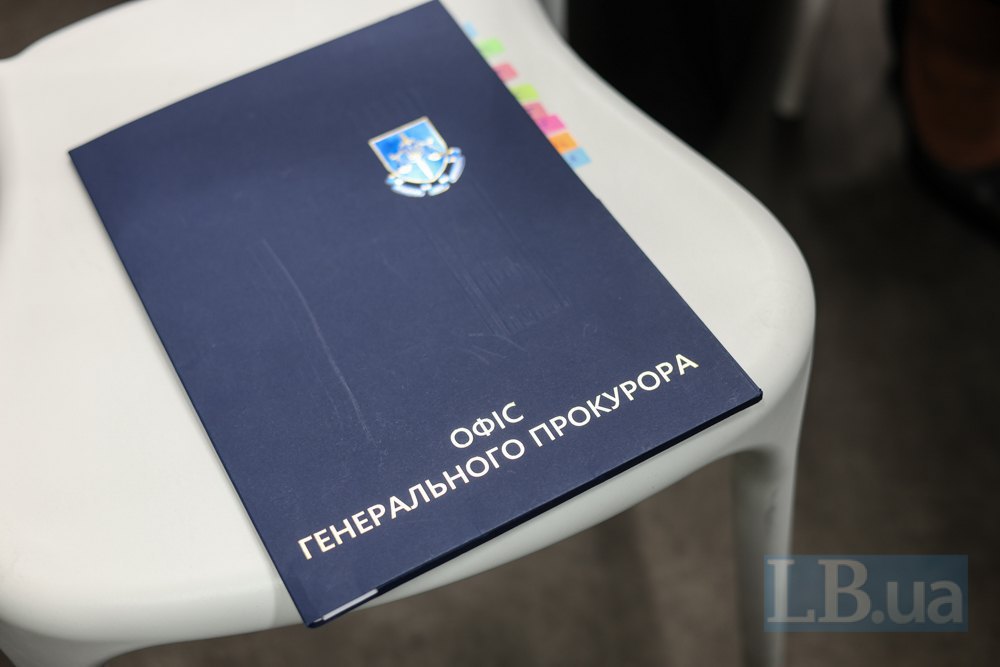
"Victories on the battlefield and victories in the courts are equivalent elements of a complete victory"
"Today, Ukraine is trying to win not only on the battlefield, but also in the courts - national and international. These are absolutely equivalent elements of our complete victory," the Prosecutor General emphasises.
He urged not to devalue small victories, because they will make up a big victory.
"Every arrest warrant. The decision to create a register. Confiscation of an asset if we find a new asset of some Russian or oligarch. Every person helped by the Ombudsman's Office. Every speech and every article by Ms Oleksandra [Matviychuk, human rights activist]. Every expert position and opinion that helps us to adopt new laws and get closer to the best standards of justice. Every victory of our business. Every victory on the battlefield. Every court verdict that fairly brings to justice a top corrupt official or criminal who deals in drugs, sells weapons illegally, steals money from local budgets, takes a kickback for a government contract related to defence or anything else. We have to appreciate every victory we have. Because our big victory is made up of small ones.
Each of us in our place does something for this victory every day. The question is that we should share these victories, appreciate everyone's victory, and not forget them. They should not disappear like a tetris, when this successful link disappears and we are left with only problems. There are and will be problems. But we can win only if we appreciate the victories of everyone.
We will learn from our mistakes, because there is no work, no war without mistakes, no war without defeats. But we must move forward and appreciate everything we achieve. Because every victory is a small brick in our bigger victory," the Prosecutor General summed up.
